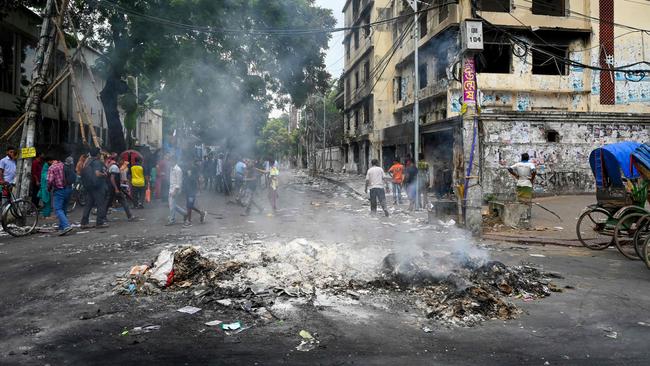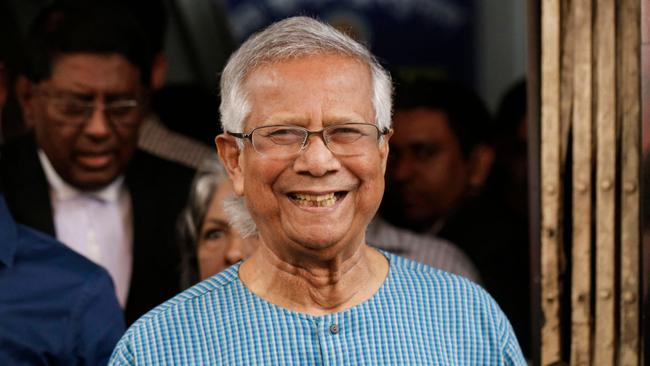Bangladesh’s ‘banker to the poor’ to lead interim government
Muhammad Yunus accepts the role of chief adviser to a transitional administration at the request of student activists.

Bangladeshi Nobel peace prize laureate Muhammad Yunus agreed on Wednesday to lead an interim government charged with preparing the country for new elections after weeks of deadly turmoil led to the shock resignation of prime minister Sheikh Hasina, who fled to India on Monday.
The economist, a vocal critic of Ms Hasina, confirmed he had accepted the role of chief adviser to a transitional administration at the request of student activists who led protests that toppled her Awami League government after 15 years in power.
“When the students who sacrificed so much are requesting me to step in at this difficult juncture, how can I refuse?” Dr Yunus said through his office.
The announcement came after President Mohammed Shahabuddin met military and student leaders on Tuesday night following the dissolution of parliament – a precondition of protesters and opposition groups who have refused to accept a military-led government and demanded fresh polls within three months. A presidential spokesman said other members of the new government would be decided after discussions with political parties and other stakeholders. It is expected to include civil society activists, technocrats and academics.
Dr Yunus, 84, is widely respected for helping lift millions of Bangladeshis out of poverty through his pioneering Grameen microfinance bank, which provided small, long-term loans to the poor to start businesses, and a popular choice to steer the troubled South Asian nation into calmer waters.
But whether Bangladesh is on the verge of a new democratic dawn, as millions hope, or the “next Pakistan” – as Ms Hasina’s son warned on Tuesday – remains to be seen.
On Wednesday US Secretary of State Antony Blinken urged the interim government to “respect democratic principles, the need to uphold the rule of law, the need to reflect the will of the people”.

In an angry television interview, Sajeeb Wazed Joy insisted his mother’s 20 years as prime minister ultimately would be seen as Bangladesh’s “golden age”. “Bangladesh will be the next Pakistan,” he warned. “Watch the minorities getting killed. You didn’t want Sheikh Hasina? Fine. This is what happens without Sheikh Hasina in Bangladesh.”
Ms Hasina, 77, served a term as prime minister from 1996 before returning to power in 2008.
In recent days former government ministers’ homes and businesses have been attacked along with members of the Hindu minority, historically Awami League supporters. On Wednesday, Bangladesh police – at the forefront of the state’s deadly crackdown on protesters – called a nationwide strike to demand safer working conditions following attacks on police stations.
US Institute of Peace analyst Geoffrey Macdonald said Bangladesh was “entering a dangerous and uncertain period” given public rage against the ousted government, and “an inclusive and credible interim government” would be key.
But political analyst Amena Mohsin said she was hopeful a Yunus-led interim government could help reform Bangladesh’s heavily politicised public institutions and dismissed parallels with Pakistan, the Muslim-majority nation with which the country fought an independence war in 1971.
“I have great faith in the people of Bangladesh,” Dr Mohsin said. “If you look at our political culture, we are a secular country and will never become Pakistan.”
Dr Yunus earned Ms Hasina’s enmity in 2007 after announcing he would start a political party. Months later he faced the first of many corruption allegations that supporters say were motivated by Ms Hasina’s view of him as a threat.
What began as student-led protests last month against a civil service job quotas for relatives of Bangladesh independence fighters morphed into a mass opposition movement after the state turned its guns on demonstrators. More than 400 people have been killed in the past month, and thousands injured.



